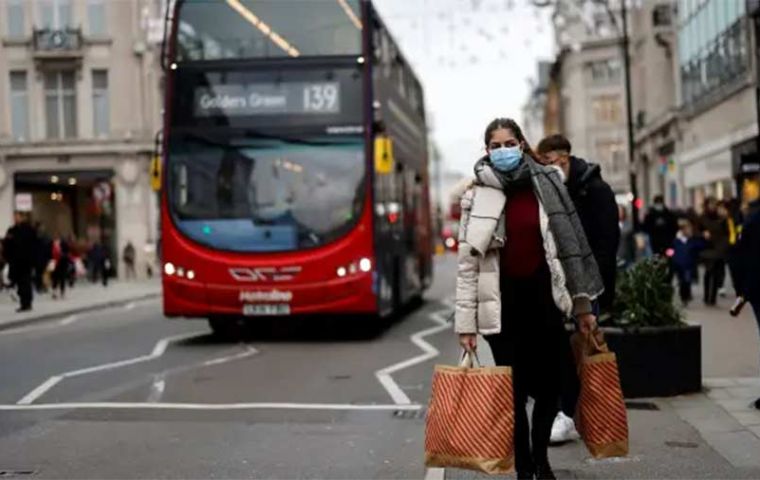MercoPress. South Atlantic News Agency
April inflation in UK, highest in 40 years with worsening prospects before it moderates
 The CPI rose by 2.5% month-on-month in April, and the 9% twelve month index is the highest since records began in their current form in 1989
The CPI rose by 2.5% month-on-month in April, and the 9% twelve month index is the highest since records began in their current form in 1989 The United Kingdom's cost of living worsening situation was confirmed by April's inflation rate which soared to a 40-year high of 9% boosted by food and energy prices.
Official figures from UK's Office for National Statistics show that consumer prices rose by 2.5% month-on-month, and the 9% twelve month index is the highest since records began in their current form in 1989, outstripping the 8.4% annual rise posted in March 1992 and well ahead of the 7% in March this year of this year.
From April first, the U.K. energy regulator increased the household energy price cap by 54% following a surge in wholesale energy prices, including a record rise in global gas prices. The regulator, Ofgem, has not ruled out further increases to the cap at its periodic reviews this year.
The Bank of England has hiked interest rates at four consecutive meetings, raising the cost of borrowing from its historic pandemic-era low of 0.1% to a 13-year high of 1%, as it looks to rein in runaway inflation without stomping out economic growth. The latest increase was in a divided BoE vote, 6 to 3, with the three demanding an even higher hike.
“Unlike in the U.S., U.K. inflation continues to rise for the time being, stoking further fears around the cost of living,” said Richard Carter, head of fixed interest research at Quilter Cheviot, in a research note.
“It will also add to the pressure on the Bank of England to increase interest rates and get to grips with soaring prices even if, as they admit themselves, many of the factors driving inflation are beyond their control.”
Carter suggested that further pressure is likely to mount on the British government to pull fiscal levers and look to “alleviate the pain on households come the Autumn.”
The British Chambers of Commerce warned following Wednesday’s announcement that the “eye-watering” inflation rate and cost-of-living crisis facing households is damaging firms’ ability to invest and operate at full capacity.
“The scale at which inflation is damaging key drivers of U.K. output, including consumer spending and business investment, is unprecedented and means there is a real chance the U.K. will be in recession by the third quarter of the year,” said Suren Thiru, head of economics at the BCC, in a note.
“While inflation may moderate a little over the summer, April’s inflationary surge is likely be surpassed in October as the expected energy price cap rise in the month lifts inflation above 10%.”
The BCC called on the British government to help consumers and businesses through the crisis by reversing its recent increase to National Insurance — a tax on income — and cutting VAT (value added tax) on business energy bills.




Top Comments
Disclaimer & comment rulesCommenting for this story is now closed.
If you have a Facebook account, become a fan and comment on our Facebook Page!